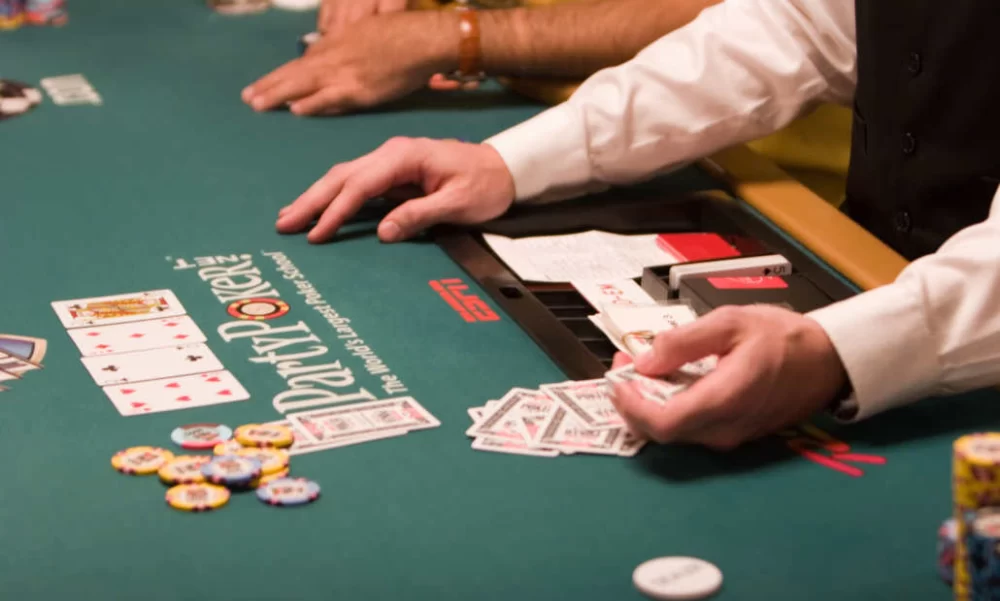
- Understanding the Basics of Poker Tournaments
- Managing Your Stack Effectively
- Adapting to the Changing Blinds
- Reading Your Opponents and Bluffing
- Staying Disciplined and Avoiding Tilt
- Real-Life Success Stories from Poker Tournaments
1. Understanding the Basics of Poker Tournaments
Before diving into advanced strategies, it’s important to understand the structure of poker tournaments. Unlike cash games, where each hand is an individual transaction, tournaments are about survival and accumulating chips over time. Players start with a set amount of chips and compete until only one player remains with all the chips. Understanding the various stages of a tournament, including the early, middle, and late phases, is crucial for applying the right strategy at the right time.
In the early stages, the blinds are low, and players have ample opportunities to make moves. In the middle stages, the blinds increase, and chip stacks begin to shrink. By the time the late stages arrive, only a few players remain, and the pressure is on to make precise decisions that could determine the winner.
2. Managing Your Stack Effectively
One of the most important strategies for poker tournaments is managing your chip stack. A well-managed stack allows you to make informed decisions and avoid unnecessary risks. There are two key components to stack management: survival and aggression.
In the early stages, survival should be your focus. You don’t need to take big risks but should look for opportunities to build your stack gradually. In contrast, when the blinds increase, you need to become more aggressive, especially if you have a healthy stack. This is the time to take calculated risks to build your chip count and put pressure on the other players.
Moreover, understanding the concept of the "M" value (which compares the size of your stack to the blinds) can help you assess whether you need to tighten up or become more aggressive. The M value gives you an idea of how many rounds you can play before your stack runs low.
3. Adapting to the Changing Blinds
Blinds increase at regular intervals in poker tournaments, and adapting to this change is essential. In the early levels, when the blinds are low, you can afford to play more conservatively. However, as the blinds increase, your stack becomes more vulnerable, and it’s time to adjust your strategy.
During the middle stages, you should begin to open up your range and look for spots where you can steal blinds or pressure weaker players. As you approach the final tables, you will need to adjust your play even further based on your position, the size of your stack, and the players around you. Tighten up if your stack is small, and use your aggression strategically when you’re in a position of power.
4. Reading Your Opponents and Bluffing
Being able to read your opponents is a critical skill in poker tournaments. Pay attention to their betting patterns, body language, and timing to determine their hand strength. Are they raising frequently? Do they take time to make decisions? These are clues that can help you decide when to fold, call, or raise.
Bluffing also plays an important role in tournaments, especially in the middle and late stages. A well-timed bluff can win you a large pot or help you steal the blinds. However, bluffing should be done sparingly and strategically. If you're bluffing, make sure your story makes sense based on the community cards and your previous betting behavior.
5. Staying Disciplined and Avoiding Tilt
One of the most common challenges in poker tournaments is emotional control. Tilt, the term for playing emotionally rather than logically, can derail your tournament experience. Whether it’s frustration from a bad beat or overconfidence from a winning streak, staying disciplined is essential.
To avoid tilt, always stick to your game plan, and don’t let short-term results affect your long-term strategy. Take breaks when necessary, and remember that poker is a marathon, not a sprint. If you find yourself getting frustrated or angry, step away from the table to regain composure.
6. Real-Life Success Stories from Poker Tournaments
Let’s take a look at a couple of real-life success stories from poker tournaments. One famous example is Chris Moneymaker, who won the 2003 World Series of Poker (WSOP) Main Event. Moneymaker, an amateur player, qualified for the tournament through an online satellite tournament. He used his understanding of tournament structure, aggressive chip management, and patience to outlast seasoned pros and take home the grand prize.
Another example is Vanessa Selbst, a professional poker player known for her strategic mind and ability to adapt to changing tournament dynamics. Selbst’s success came from her ability to play aggressively when needed and maintain discipline when her stack was smaller. She also used her understanding of reading opponents and exploiting weaknesses to dominate the competition.
These success stories highlight the importance of strategy, patience, and emotional control. Whether you’re a beginner or a seasoned pro, applying these principles can significantly improve your chances of success in poker tournaments. If you’re looking for further advice and guidance on improving your poker skills, visit CasinoScope for more expert tips and resources to enhance your gameplay.








